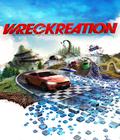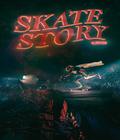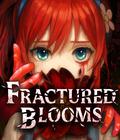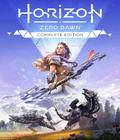It wasn't that long ago that I was tasked with reviewing the PC release for Death Stranding. Sony, in its continuation to penetrate the PC player base, now releases yet another juggernaut from its long list of console exclusives, Horizon: Zero Dawn. Both games utilize the Decima Engine, but despite these similarities, the two titles couldn't be more different. Where Death Stranding felt like a PC port masterpiece with a faltering story that couldn't match the top-notch production values, Horizon is the polar opposite. With incredibly fun gameplay and a story that delivers more and more intrigue as you delve further into its mysteries, the only thing holding it back is its presentation.
Even during the initial E3 reveal, it was clear that Guerrilla Games had something special with Horizon. Set in a distant future, 1,000 years from the present day, the world has fallen to ruin and is overrun by zoomorphic robots. While humans still roam the lands, they are merely tribal folk with minimal understanding of the technology from both the past and present. You play as Aloy, a motherless child who was cast from her tribe due to her irregular birth. As the story progresses, you slowly unravel the mysteries of Aloy and the machines that inhabit the surrounding lands, and you quickly learn how they're intertwined. The opening hours are on the slow side, but Horizon feels like the exception to the norm in the video game industry. This isn't a title with an amazing concept that falls apart as you dig deeper. I continually found myself more engaged as I sunk more time into the experience. There are a number of reveals in the back half of Horizon that piqued my interest and drove me to see the story to the end.
The slow start is quickly overshadowed by gorgeous vistas that serve as the backdrop of the 30-hour campaign. With a vast map that sprawls across multiple biomes, Horizon's environmental visuals are a sight to behold. If you can brush aside the oddity of deserts bordering snow-capped mountains that loom over jungles, it truly is a marvelous playground to explore. In some ways, these disparate environments create a fresh game experience that constantly keeps you on your toes, and Guerrilla Games somehow makes these juxtaposed environments work well together. With walking paths intersected by gates and running bodies of water, the visual changes seamlessly flow from one to another, and it never broke my immersion or threw off my guard.
Aloy has taken a few notes from Nathan Drake and Lara Croft because traversing these landscapes is a breeze. Players will find plenty of handholds, ridges, and slopes to climb and are often rewarded with beautiful vantage points. This same mechanic is how players reveal additional portions of the map. This is an open-world game in a post-Assassin's Creed 2 world, so naturally, the only way to reveal a map is to climb something tall. In this case, Aloy must climb massive machines called Tallnecks, but they offer little challenge and are another icon on a map that's used to reveal … even more icons on a map. In this regard, Horizon feels a bit dated and exhausting: It's the epitome of open-world bloat. If you open the map and leave all of the icon filters on, practically the entire map is covered with icons, side-quests, and item pick-ups. Some of the icons, like machine sites, can be disabled, but that only mildly mitigates the overload of information that the game throws at you.
Of course, an open-world game needs more than a captivating story and tons of side-quests, and Horizon delivers on all fronts. Aloy is equipped with weapons for combat against the various machines. You start with a simple spear and bow, but your arsenal quickly grows with the addition of new arrow types and new weapons. With plenty of enemy variety, each with their own strengths and weaknesses, each weapon is useful in different scenarios. Some enemies may be vulnerable to fire, so you can use fire arrows. Airborne enemies may lose their aerial advantage when you use a ropecaster to temporarily tether them to the ground.
What makes Horizon's combat engaging is that the enemies have special attacks, which Aloy can target with specific arrow types to remove components from the enemy and disable that attack type. Some components are small and often in obfuscated areas that call for precision shots. All of this adds up to an engaging combat system that stands out from other games in the open-world genre. Between the status effects, reflex shots, and a multitude of weapons at your disposal, the battles in Horizon never feel stale.
Like other games in the genre, as you defeat enemies and gain experience, you can spec Aloy down various skill trees. Those who prefer shadows or spears are in luck. Guerrilla Games has included a Prowler branch that lets you utilize stealth mechanics to overcome your adversaries. Aloy can use rocks and a whistle ability to lure enemies while she lurks in some tall grass. You have the option to lay tripwires and traps or rely on a sneak attack with your spear. It's viable strategy — perhaps too viable. The enemy AI responds to your stealthy interactions with the intelligence of a one-year-old. You can easily whistle toward a pack of enemies and pick off one after another, and the other enemies would be none the wiser. I deviated from the stealth approach about halfway through the game. Hitting explosive canisters on the back of an alligator robot with pinpoint accuracy is so much more fun than the "sit, wait, and stab" approach — even if that means I died more often.
In addition to the main plot, there's plenty of additional side content to chew through. The massive map is littered with characters seeking aid, underground areas ("cauldrons") that unlock override abilities so machines can aid you in battle, and trial scenarios to hone your combat skills. The content can range drastically in quality, but some of them stand out. In particular, players should check out the Hunting Lodge missions, which open up fun combat scenarios with high-level monsters that almost serve as boss encounters. The missions reward you with plenty of loot and skill points, and they feature a compelling self-contained storyline.
As alluded to earlier, the cauldrons are fun 15-minute journeys that let you explore the depths of machine-crafting underground areas. Completing these opens up override abilities on your spear, so machines can fight by your side and serve as mounts for quick traversal across the map. The cauldrons are fun and often end with a tense battle in confined quarters, but I didn't engage the override ability that often. With fast traveling and a preference for explosions, I never needed the machine companions to aid me in my travels or battles.
The combat and plot are the highlights, but Horizon isn't free from criticism. Most notably would be the poor voice acting, lip-synching, and facial animations. It's grating to see when paired with such a well-written story. Most of the plot points are delivered through dialogue choices. Aloy's interactions with the other characters are nearly as robotic as the machines that prey upon the surrounding wilds. Characters jerk their heads back and forth for seemingly no reason, eyes dart left and right, and facial animations twitch at random. These oddities are even more noticeable when accompanied by voice acting that ranges from tolerable to bad. Fortunately, most of the major characters have decent voice acting support, but be ready for laughable dialogue.
There are a number of jarring camera cuts between far shots and close-ups of characters during these interactive dialogue segments. While none of this is a deal-breaker, it's unfortunate nonetheless. For a game with such a captivating setting and smartly delivered plot points, it's sad to see that the dialogue can't be delivered at the same caliber.
The port also lends itself to additional unmet desires. As of the time of this review, Horizon is receiving complaints and backlash from players about stability issues. I was fortunate enough to escape any critical issues with the game, but it wasn't an entirely smooth experience. Unlike Death Standing, another Decima Engine game recently released for PC, Horizon offers middling performance. I didn't think DLSS made a difference, but after experiencing its benefits in Death Stranding, it's a painful omission that hampers the game's quality. With a Ryzen 3600 and an RTX 2070 Super, I was forced to play at 1080p resolution if I wanted to hit the 60 fps mark (and even that would dip into the 40s every now and again). Switching to 4K required a cut to sub-30 fps at best — something I often opt against.
I also encountered a couple of frustrating crashes during cut scenes that required a replay of challenging combat scenarios, one frozen load screen, and audio glitches that caused certain dialogue to play through a different audio source if I had more than one piece of audio equipment plugged into my PC. Beyond the handful of crashes, if you can avoid the significant problems some folks are experiencing, the PC edition is the definitive way to enjoy Horizon. While the frame rate isn't where I want it to be, it's leaps and bounds better than what you'll get from a base model PS4.
A number of small touches in the PC version mitigate immersion-breaking visuals. The draw distance on grass is much improved over the PS4 iteration, vegetation is denser, features are more detailed, and the tall grass offers much better reactive physics when Aloy passes through.
Included with the PC version is the expansion, The Frozen Wilds. I'm still making my way through it, but it's a welcome addition to the base game. Unlike many other DLCs, The Frozen Wilds is satisfying. There's additional plot to flesh out Aloy's world, and there's a significant new landmass added to the map. This area also comes with new enemy types to freshen up the combat after you've mastered the enemy machines from the base game.
Despite some of my qualms with the production and PC port quality, I highly recommend picking up Horizon: Zero Dawn for the PC. Yes, there is some risk of encountering the issues that others have seen, but fortunately, Steam's generous refund system serves as a comforting protection against wasted money. Overall, it's an easy recommendation for all cohorts of gamers. Players who didn't have a PS4 can experience a well-crafted world with a captivating story to flesh it out, and those who already played it back in 2017 might still enjoy the PC version's improved visuals and frame rate. This is a great way to refresh your memory on Aloy's adventures before the sequel releases in 2021 for PS5.
Score: 8.2/10
More articles about Horizon Zero Dawn











 Horizon Zero Dawn is an action role-playing game where you, as main protagonist Aloy, a skilled hunter, explore a vibrant and lush world inhabited by mysterious mechanized creatures.
Horizon Zero Dawn is an action role-playing game where you, as main protagonist Aloy, a skilled hunter, explore a vibrant and lush world inhabited by mysterious mechanized creatures.




























